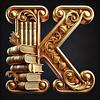Take a photo of a barcode or cover
573 reviews for:
The Time Traveler's Guide to Medieval England: A Handbook for Visitors to the Fourteenth Century
Ian Mortimer
573 reviews for:
The Time Traveler's Guide to Medieval England: A Handbook for Visitors to the Fourteenth Century
Ian Mortimer
An amazing book that answers all of the small questions -- what do people do for fun, what do people eat, how much for a box of nails, &. -- one might have about medieval England that other history books skip over.
challenging
informative
reflective
medium-paced
adventurous
informative
reflective
fast-paced
A really great non fiction that is a great overview of the 14th century in England.
Graphic: Death, Gore, Medical content
This book talks about the hard realities of life in the 14th century, the good the bad and the ugly. But there’s a lot of good.
Great insight into a fascinating period of history. Looking forward to the next guide!
The Time Traveller's Guide to Midieval England by Ian Mortimer takes readers on a fascinating and very real tour of the past. Mortimer highlights how residents of different classes lived, including the hospitality available to travellers of different distinctions. He points out the styles, foods, and architecture while also expertly defining who had access to each (or didn't).
Mortimer is conversational and insightful, while also painting a very vivid picture of the realities faced by the people of midieval England.
By far the best characteristic of The Time Traveller's Guide is the author's approach to history as a living entity. Readers visit very real people, living people -- which is refreshingly different from many histories that approach those from the past as long-dead, one dimensional people simply being reviewed. This unique lens makes the book lively and engaging - and truly feel like a tour of a living, breathing past.
Mortimer is conversational and insightful, while also painting a very vivid picture of the realities faced by the people of midieval England.
By far the best characteristic of The Time Traveller's Guide is the author's approach to history as a living entity. Readers visit very real people, living people -- which is refreshingly different from many histories that approach those from the past as long-dead, one dimensional people simply being reviewed. This unique lens makes the book lively and engaging - and truly feel like a tour of a living, breathing past.
A fun book to learn more about what life was actually like in the 14th century. I learned some cool facts! It's written in present tense, like a real travel guide, which makes it much nicer to read. However, some parts were a bit too long and detailed for my liking.
informative
lighthearted
slow-paced
I really enjoyed the premise of this - if we went back in time to Medieval England and experienced it for ourselves, what would that look like? What would we eat, where would we live, what kind of clothes would we wear, who would we associate with? However, without any real narrative or storyline, I found it hard to stay engaged. I ended up skipping whole sections that I wasn't as interested in. I do feel that some of the medieval-set fiction I've read have done a better job painting a picture of day to day life (namely [b:Company of Liars|2761171|Company of Liars|Karen Maitland|https://i.gr-assets.com/images/S/compressed.photo.goodreads.com/books/1327931234l/2761171._SY75_.jpg|2786880] and [b:The Pillars of the Earth|5043|The Pillars of the Earth (Kingsbridge, #1)|Ken Follett|https://i.gr-assets.com/images/S/compressed.photo.goodreads.com/books/1576956100l/5043._SY75_.jpg|3359698]), although I appreciate now knowing for sure how accurate and well-researched they are. But in general I did walk away from this knowing more about medieval life than I started with, and that was the ultimate goal.
I’ve never been interested in medieval history or stories, but this book is different. It upends how you think about history by placing you in the 1300’s and showing you around. I found myself enthralled by the informative, funny, and honest storytelling. If all history books were written like this, I would’ve paid attention in class.
absolutely wonderful, i loved it so much!
some fun things I learned:
- medieval townspeople had pumpkin spice
- medieval people really like sarcasm
-one of the most popular foods was called pottage which as i understand it, is somewhere between savoury porridge and a stew
- people weren't as dirty as we think
- men's fashion changed the most in the 14th century than any other century
some fun things I learned:
- medieval townspeople had pumpkin spice
- medieval people really like sarcasm
-one of the most popular foods was called pottage which as i understand it, is somewhere between savoury porridge and a stew
- people weren't as dirty as we think
- men's fashion changed the most in the 14th century than any other century




